Recent Blog Posts
What Happens if a Maintenance Company’s Mistake Caused a Virginia Truck Crash?
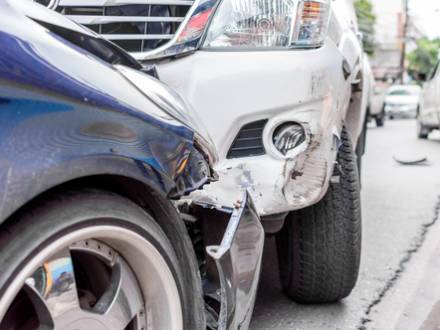 When a truck accident occurs, the initial reaction is to blame the driver. However, several parties could be liable. If poor maintenance is the cause, a company that inspects or repairs trucks may share responsibility for the crash. Understanding how Virginia law addresses these cases can help you build a stronger claim for compensation. Our Manassas, VA truck accident lawyers will investigate the accident and explain your legal options.
When a truck accident occurs, the initial reaction is to blame the driver. However, several parties could be liable. If poor maintenance is the cause, a company that inspects or repairs trucks may share responsibility for the crash. Understanding how Virginia law addresses these cases can help you build a stronger claim for compensation. Our Manassas, VA truck accident lawyers will investigate the accident and explain your legal options.
Maintenance Problems That Could Lead to a Truck Accident
Trucks need routine care to stay safe on the road. When a maintenance company cuts corners or does poor work, it puts everyone in danger. Some common issues that could cause an accident include:
-
Brakes that fail because of skipped inspections
Can I Get Paid if I Am Partially At Fault for a Car Accident in Virginia?
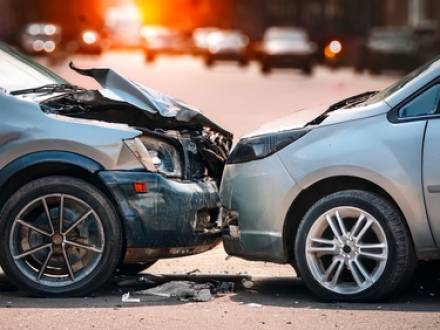 Virginia is one of only a few states that follows the strict contributory negligence rule. If you are accused of being partially at fault for a car accident, this rule makes it significantly harder to recover damages. An experienced Shenandoah Valley, VA car accident lawyer can help you understand your rights, protect you against unfair blame, and give you the best chance of securing compensation.
Virginia is one of only a few states that follows the strict contributory negligence rule. If you are accused of being partially at fault for a car accident, this rule makes it significantly harder to recover damages. An experienced Shenandoah Valley, VA car accident lawyer can help you understand your rights, protect you against unfair blame, and give you the best chance of securing compensation.
Understanding the Contributory Negligence Law in Virginia
Under Virginia’s pure contributory negligence system, if you are found even one percent at fault for causing a crash, you likely will not be able to recover compensation. The law is rooted in Virginia Code §8.01-34, which allows multiple parties to be held responsible when a civil wrong occurs.
Why Was My Virginia Workers’ Compensation Claim Denied?
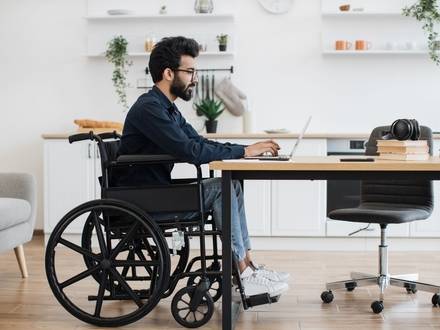 A workers’ compensation denial can feel like a second injury. It can leave you wondering how you will cover medical costs and survive with the loss of income. The good news is that a denial is not always final. You still have a path to correct errors, and the first step is to speak with an experienced Northern Virginia workers’ compensation attorney.
A workers’ compensation denial can feel like a second injury. It can leave you wondering how you will cover medical costs and survive with the loss of income. The good news is that a denial is not always final. You still have a path to correct errors, and the first step is to speak with an experienced Northern Virginia workers’ compensation attorney.
Common Reasons Workers’ Comp Claims Are Denied in Virginia
The most common reasons Virginia workers’ comp claims are denied include:
-
Delayed reporting: Virginia Code § 65.2 600 requires notice as soon as practicable and no later than thirty days.
-
Failure to file in time: A Claim for Benefits must be filed within two years of the accident, as required by § 65.2 601.
Virginia’s Interstate 81 and the Danger of Auto Accidents
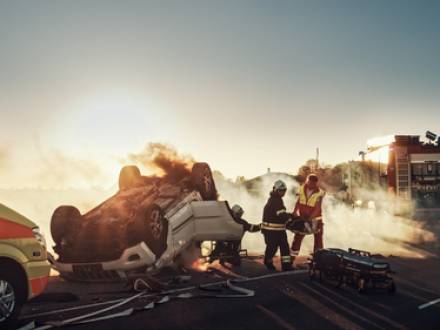 Interstate 81 is an essential route for travelers, commercial truck drivers, and commuters in Virginia. However, it is also known for its high rate of auto accidents. The combination of heavy traffic, unpredictable weather, and the complex landscape of the Shenandoah Valley contributes to the risks on this highway. If you have been involved in an I-81 accident, consider speaking with a Warrenton, VA car accident attorney immediately.
Interstate 81 is an essential route for travelers, commercial truck drivers, and commuters in Virginia. However, it is also known for its high rate of auto accidents. The combination of heavy traffic, unpredictable weather, and the complex landscape of the Shenandoah Valley contributes to the risks on this highway. If you have been involved in an I-81 accident, consider speaking with a Warrenton, VA car accident attorney immediately.
Common Causes of Accidents on I-81 in Virginia
There are several factors that contribute to accidents on I-81. Speeding is among the most common. According to Virginia Code § 46.2-861, drivers must reduce speed when conditions are hazardous. Failing to do so can result in a traffic violation and may be used as evidence in an accident claim.
Who Can I Sue for a Construction Work Injury in Virginia?
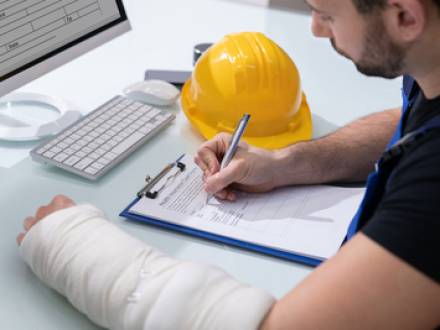 Construction sites are among the most hazardous workplaces in Virginia. Heavy machinery, elevated workspaces, electrical hazards, and multiple contractors operating at once create a high risk for serious injuries. If you were hurt while working at a construction site and a third party was responsible, you may be able to file a personal injury claim. A Woodstock, VA construction injuries attorney can help you explore your options and pursue the compensation you deserve.
Construction sites are among the most hazardous workplaces in Virginia. Heavy machinery, elevated workspaces, electrical hazards, and multiple contractors operating at once create a high risk for serious injuries. If you were hurt while working at a construction site and a third party was responsible, you may be able to file a personal injury claim. A Woodstock, VA construction injuries attorney can help you explore your options and pursue the compensation you deserve.
What Is a Third-Party Claim For a Workplace Injury in Virginia?
If you are injured on the job, your first source of compensation will likely be workers’ compensation, which typically covers medical treatment and a portion of lost wages. However, Virginia workers’ compensation laws generally prevent employees from suing their employer, even if the employer was negligent.
Who Is at Fault for a Parking Lot Accident in Virginia?
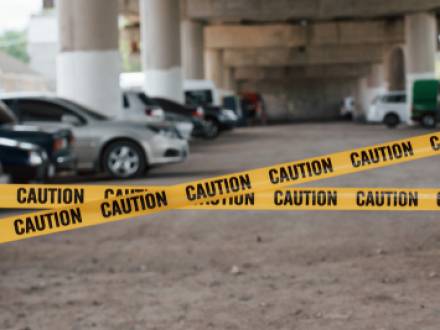 Because parking lots are low-speed zones, people often assume nothing serious can happen. However, car accidents occur in them every day. Drivers often hurry to find spots, fail to see pedestrians, or back out without checking properly that there is nothing behind them. Whoever fails to follow parking lot traffic rules would be at fault and responsible for damages. If you are dealing with a parking lot crash, a Fairfax, VA car accident attorney can help you determine who is at fault and liable for your losses.
Because parking lots are low-speed zones, people often assume nothing serious can happen. However, car accidents occur in them every day. Drivers often hurry to find spots, fail to see pedestrians, or back out without checking properly that there is nothing behind them. Whoever fails to follow parking lot traffic rules would be at fault and responsible for damages. If you are dealing with a parking lot crash, a Fairfax, VA car accident attorney can help you determine who is at fault and liable for your losses.
Parking Lot Traffic Rules in Virginia
Even though parking lots are private property, Virginia’s traffic laws still apply. Drivers must follow posted signs, painted arrows, speed limits, and general right-of-way rules. Examples of laws that apply to parking lot traffic include:
What Causes Truck Rollover Accidents in Virginia?
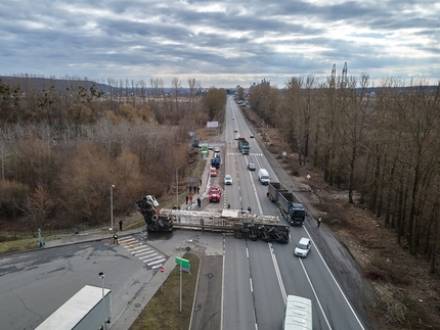 Truck rollovers are among the most devastating types of roadway accidents, often resulting in serious injuries and multi-vehicle collisions. For the victims, determining the cause of a rollover accident is an important part of building a personal injury claim to recover compensation for financial losses. Several factors can contribute to these incidents, from driver error to mechanical issues. If you have been affected by a truck rollover, a Berryville, VA truck accident attorney will investigate the case, wading through the complexities to find proof of fault.
Truck rollovers are among the most devastating types of roadway accidents, often resulting in serious injuries and multi-vehicle collisions. For the victims, determining the cause of a rollover accident is an important part of building a personal injury claim to recover compensation for financial losses. Several factors can contribute to these incidents, from driver error to mechanical issues. If you have been affected by a truck rollover, a Berryville, VA truck accident attorney will investigate the case, wading through the complexities to find proof of fault.
What Is the Most Common Cause of Truck Rollovers in Virginia?
The most common cause of truck rollovers is driver error. For example, excessive speeding is especially dangerous for commercial trucks. The vehicle’s high center of gravity makes it more likely to tip when taking a turn too quickly. Even at speeds that would be considered safe for a smaller vehicle, a truck can become unstable, and the danger increases on high off-ramps, tight rural roads, or curved stretches of highway like Route 81.
How Long Do You Have to Report a High Fall at Work in Virginia?
 Falls from heights on the job are not uncommon, especially for industrial and construction workers. These accidents can result in devastating injuries and significant financial losses due to the cost of medical care and lost wages.
Falls from heights on the job are not uncommon, especially for industrial and construction workers. These accidents can result in devastating injuries and significant financial losses due to the cost of medical care and lost wages.
Under Virginia law, you have 30 days to file a report with your employer and two years to file a workers’ compensation claim. However, the specifics of your incident can impact when the clock on those deadlines starts to tick. An experienced Front Royal, VA workers’ compensation attorney can help you report your accident and file your claim to ensure you access all available benefits.
What Is the Process for Reporting a Job-Related Injury in Virginia?
According to Virginia law, the 30-day window to report your injury starts from the date of the accident or the date that a doctor informs you that you have a work-related injury. The law also stipulates requirements for what qualifies as a work-related injury:
Strengthening Your Claim After a Car Accident in Virginia
 Virginia uses a fault-based system to govern the recovery of damages after a car accident, holding the negligent party liable for your losses. However, when you make an insurance claim or file a lawsuit for damages, you are responsible for proving the other party’s negligence and establishing the connection between your losses and their actions. An experienced Gainesville, VA car accident lawyer can walk you through the legal process and help you take steps to protect your claim.
Virginia uses a fault-based system to govern the recovery of damages after a car accident, holding the negligent party liable for your losses. However, when you make an insurance claim or file a lawsuit for damages, you are responsible for proving the other party’s negligence and establishing the connection between your losses and their actions. An experienced Gainesville, VA car accident lawyer can walk you through the legal process and help you take steps to protect your claim.
What Can You Do Right After a Car Accident to Protect Your Claim in Virginia?
In the immediate aftermath, while you are still on the scene, there are a few critical steps you can take to start building your case if it is safe to do so:
-
Gather photographic evidence: If you or someone with you is physically able, take photographs of the scene, including damage to the vehicles and shots of the surrounding area.
Who Pays for Damages if an Uber Driver Hits Me in Virginia?
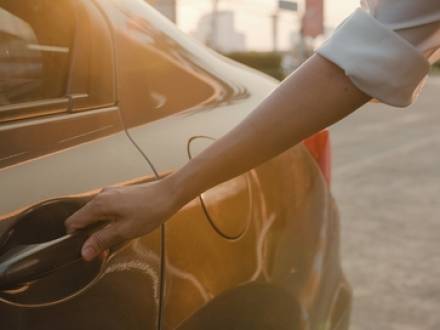 Rideshare companies, like Uber and Lyft, are in every major city and surrounding area in the U.S. Like anyone else, they can cause a car accident, and since Virginia has an at-fault system for liability, they can also be responsible for damages. If you suffered an injury or damage to your person or property in a rideshare accident, a Prince William County, VA rideshare accident attorney will file a claim on your behalf, negotiate with insurance companies, and represent you should you need to file a lawsuit.
Rideshare companies, like Uber and Lyft, are in every major city and surrounding area in the U.S. Like anyone else, they can cause a car accident, and since Virginia has an at-fault system for liability, they can also be responsible for damages. If you suffered an injury or damage to your person or property in a rideshare accident, a Prince William County, VA rideshare accident attorney will file a claim on your behalf, negotiate with insurance companies, and represent you should you need to file a lawsuit.
Does Uber Pay for Losses When Their Driver Hits Someone in Virginia?
If an Uber driver hit your car, you will need to find out if they were on duty, meaning active on the Uber app when the crash occurred. When an Uber driver is on the way to pick up a passenger or has a passenger en route, they are covered by Uber’s insurance. However, if the driver was not active on the Uber app when the collision occurred, their own insurance would likely cover the cost of damages if they were at fault for the accident. Ultimately, this means that under certain conditions, you can hold Uber accountable for the negligence of one of their drivers.


